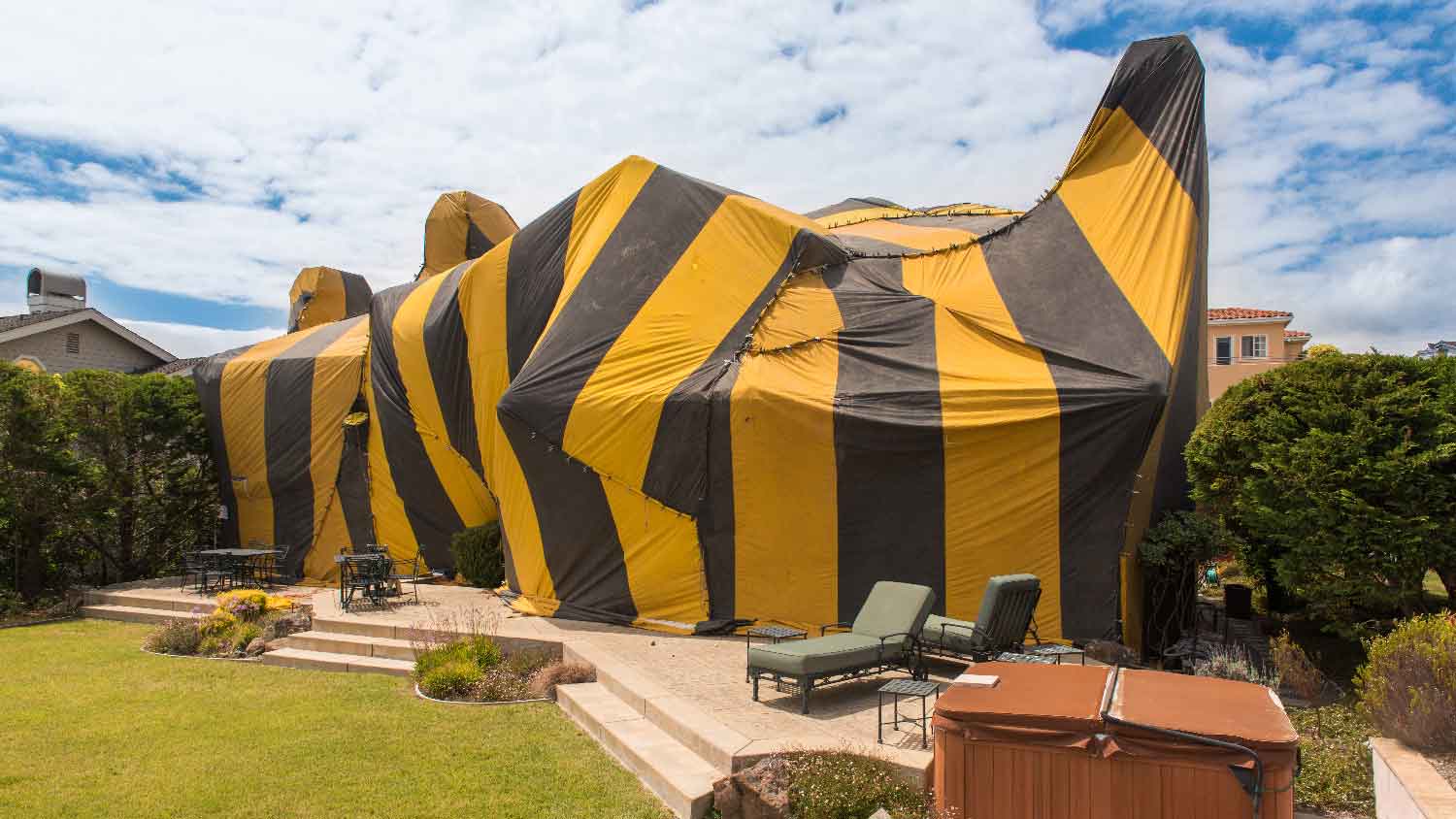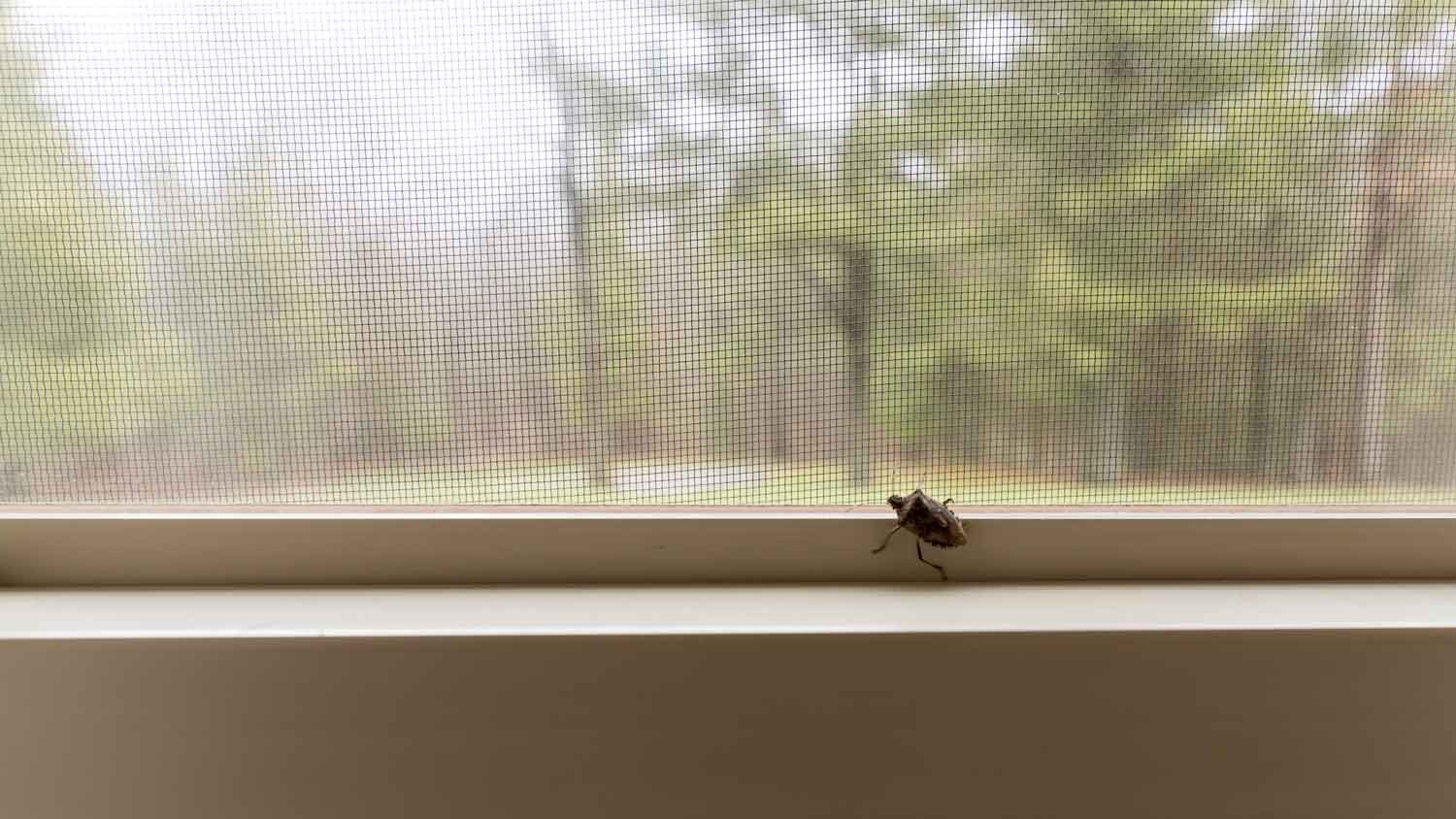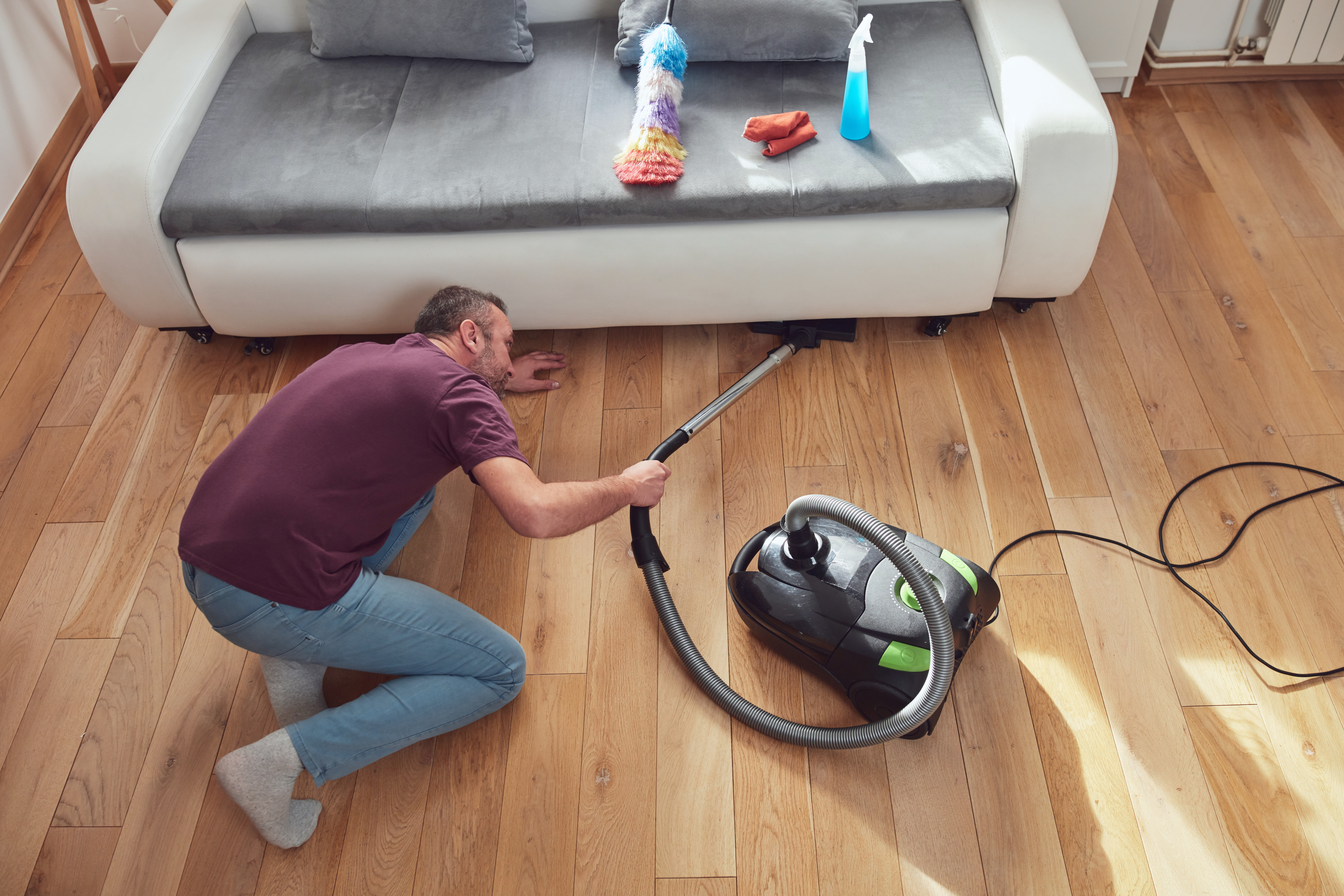
Snake removal cost comes down to the type and number of snakes you’re dealing with and where they’re located inside your home. This guide breaks it down.
Depending on the type of wasp, wasp nest removal can range from $100 and $1,300. Other cost factors include the size and location of the nest; most homeowners will end up paying around $525.


The best wasp nest removal method depends on the wasp species, nest size, and its location.
Small wasp nest removal starts at $100, while a very large, active nest removal can cost up to $1,300.
For severe infestations, multiple visits from a wasp removal pro may be necessary.
Repairs from wasp damage range from $300 to $1,000.
It's safest to hire an exterminator to remove wasp nests due to the high risk of being stung.
Wasp nest removal costs about $525 on average, with most homeowners spending between $300 and $700.
Removal of a small nest can cost as low as $100, while larger nests can cost up to $1,300 to remove. For severe infestations, monthly visits may be necessary for around $40 to $70 per visit, with the initial visit typically costing between $150 and $300. Prices vary depending on the size, location, and type of wasp.
Wasp extermination costs can vary widely based on a few key factors, including the size of the nest, its location, and the type of wasp.
While one or two wasps may seem scary, dealing with a hive with hundreds of workers can be even worse. The larger the hive, the more difficult and time-consuming the removal and cleanup will be.
For small hives of around 10 to 50 worker wasps, you’re looking at spending around $250 for extermination on average. Medium hives with 50 to a couple hundred wasps will be in the $500 range. Large nests can cost up to $1,000—or more.
| Hive Size | Average Cost |
|---|---|
| Small | $250 |
| Medium | $500 |
| Large | $1,000 |
While most people associate our buzzing neighbors with hanging from a tree or off the side of the house, not all wasps or hornets prefer to make their homes here. Some build inside your attic, in the walls, and even underground. If this happens to you, the local wasp removal company you hire will likely need to cut into different parts of the home, which could lead to additional repair costs.
| Location | Cost Range |
|---|---|
| Walls | $250–$800 |
| Attic | $300–$500 |
| Chimney | $400–$600 |
| Trees | $200–$600 |
From sprays to full-on nest removal, you can choose between a few wasp extermination methods.
| Wasp Extermination Method | Minimum Cost | Description |
|---|---|---|
| Aerosol | $125–$150+ | Economical choice for removing hanging wasp nests, such as those with paper wasps and bald-faced hornets. Costs vary based on species, location, and the extent of the infestation. |
| Dusting | $200+ | Targets wasps that build underground nests, such as yellow jackets and certain hornet species. The process involves introducing a powdered pesticide, such as permethrin, into the nest entrance. |
| Vacuuming | $250+ | Vacuuming is the ideal approach for eliminating wasps that have infiltrated your home. |
| Extermination | $350 | Wasps are commonly exterminated because they’re aggressive, the hive has grown too large to remove, or they’re causing damage to the home. It’s arguably the quickest method for exterminators |
For severe wasp infestations, multiple visits may be necessary, with costs ranging between $200 and $600 per visit. Check out how much to budget for multiple visits from a wasp exterminator.
| Number of Treatments | Average Total Cost |
|---|---|
| 1 | $200–$600 |
| 2 | $400–$1,200 |
| 3 | $600–$1,800 |
| 4 | $800–$2,400 |
| 5 | $1,000–$3,000 |
| 6 | $1,200–$3,600 |
| 7 | $1,400–$4,200 |
| 8 | $1,600–$4,800 |
| 9 | $1,800–$5,400 |
| 10 | $2,000–$6,000 |

Not all wasps are the same. The three most common types of wasps include yellowjackets, hornets, and paper wasps, each with their preferred method of building their nests. Bald-faced hornet and yellow jacket removal costs tend to be the highest, while more docile species like paper wasps tend to be the lowest.
| Wasp Removal Type | Description | Cost |
|---|---|---|
| Yellowjackets | Hides hives underground, aggressive, moderate-sized nest | $500–$750 |
| Hornets | Nest is football-shaped and hangs from a tree branch or other vertical surface; not aggressive away from nest but can be when the nest is nearby | $300–$400 |
| Paper Wasps | Not aggressive, docile nature; nest is papery and umbrella-shaped, with a single comb of cells | $100–$200 |
| Mud Dauber | Nests are made of mud and are often tube-shaped; not aggressive but tend to construct nests in human-frequented areas | $300–$400 |
| Red Wasps | Don’t sting unprovoked; nest is umbrella-shaped and attached to a structure by a single strand | $310–$400 |
| Bald-faced Hornets | Nest is typically gray or brown and football-shaped; hangs from a tree branch or other vertical surface | $625–$750 |

Before starting the removal process, you’ll need a pest control company near you to come out and check a few things. These items include the extent of the infestation, where the wasps are coming from in the home, and any damage you may incur from removing them.
National chains often inspect for free but tend to cost more for the removal process than local companies. Contacting a pest control company in your area is the first step to getting a personalized quote.
Removing wasps is similar to removing bees. However, wasp removal tends to pose a more significant risk and result in more aggressive attacks, so expect to pay around $400 for wasp removal.
Wasps can cause damage to your home, which could mean repairing beams in the attic, fixing a hole in the wall, or resodding the area where pros dug up the nest. Repairs can range from $300 to $1,000, depending on the type of repair.
Roof repair costs: $390–$1,880
Ceiling repair costs: $150–$4,420
Siding repair costs: $360–$1,450
Window repair costs: $177 to $634
Door repair costs: $50–$700
Hiring a wasp removal pro near you will cost you between $290 and $600 on average. It can be dangerous to remove wasps yourself—especially if you’re allergic to wasp stings.
Removing wasps isn’t easy, so here’s why you should hire an expert:
Aggressive wasp species can seriously harm you and require professional intervention.
If you’re unfamiliar with removing wasps from high areas, you risk falling during the removal process.
A professional wasp removal company has the skills to correctly identify wasp species and handle them accordingly.
Reputable pros are licensed to handle wasp removal services.
Your pro has the tools and protective gear to safely remove wasps from your property.
Some professionals offer humane relocation services for wasps.
Pros can reach difficult areas and offer repair services.
Your pro can assess your property, identify issues, and offer solutions to prevent more wasp infestations.
Home insurance and home warranties don’t usually include wasp removal services, but check the fine print of your plan and contact the provider to find an in-network technician if you’re eligible.
If you want to participate in the wasp removal process, consider the following smaller tasks:
Spraying insecticides around your property
Clearing obstructions that block access to the nests
Trimming plants to increase accessibility
Noting the locations of any nests
Wasp nest removal can be expensive, but there are few ways to keep costs as low as possible:
Get quotes from multiple pest control companies to find the best price.
Consider DIY methods, such as decoy nests and repellents like peppermint oil and geranium oil.
Keep your property well-maintained and free of debris, which can attract wasps.
If you are having trouble with other pests around your home, ask your exterminator about bundling services to save on costs.
To save on potential costs for removal in the future, consider applying preventative treatments that can deter wasps from building nests around your home.
If the wasp nest isn’t posing an immediate threat to the animals and humans around your home, consider letting it be.
Some pros offer wasp nest relocation, so be sure to ask ahead of time about more humane service options.
If your pro needs to remove structures to access the nests, be prepared for a higher quote.
Consult your wasp pro about preventative measures to avoid future wasp infestations.
Ask your pro for referrals to local carpenters if they need to remove wooden structures to reach the wasps.
Home is the most important place on earth, which is why Angi has helped more than 150 million homeowners transform their houses into homes they adore. To help homeowners with their next project, Angi provides readers with the most accurate cost data and upholds strict editorial standards. We extensively research project costs to develop the pricing data you see, so you can make the best decisions for you and your home. We rely on reputable sources, including the U.S. Bureau of Labor Statistics, academic journals, market studies, and interviews with industry experts—all to ensure our prices reflect real-world projects.
Want to help us improve our cost data? Send us a recent project quote to [email protected]. Quotes and personal information will not be shared publicly.
From average costs to expert advice, get all the answers you need to get your job done.

Snake removal cost comes down to the type and number of snakes you’re dealing with and where they’re located inside your home. This guide breaks it down.

Moth infestations can cause damage to items in your home. Learn how much moth extermination costs and ways to save in this informative guide.

Tenting is a costly but effective way to exterminate termites. Learn the average termite tenting cost and everything that will factor into your budget.

Stink bugs are annoyingly persistent, but there are ways to fight back. Learn how to exterminate stink bugs in the house and prevent them from coming back.

Whether it’s a swarm of mosquitos interrupting your summer evening on the patio or the discovery of fleas in the guest room, you may have to break out bug spray. Read on for tips to reduce your exposure and signs of bug spray side effects.

There are many types of mites that may infest your home. Learn how to get rid of mites and tips for preventing them from returning.